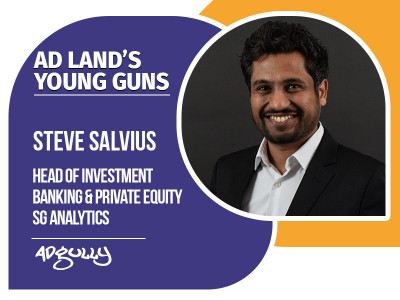70-hour work week and productivity: Dilemma of the post-pandemic workplace
Infosys Founder Narayana Murthy’s recent statement urging young professionals to work 70 hours a week sparked an impassioned debate across the industry. Murthy’s suggestion has ignited conversations across social media and offline discussions, with varying opinions and perspectives coming to the forefront.
While Murthy’s viewpoint is seen by some as a call for increased productivity, there are several voices offering contrasting opinions on this issue. On the other hand, there are also reports on how professionals in the IT industry have to log in around 40-50 hours at work every week.
Let’s take a closer look at what prominent figures and experts have to say about the idea of a 70-hour work week in today’s rapidly evolving, post-pandemic work landscape.
Balancing Work and Life
DP Vishwakarma, an author and consultant, emphasises the importance of maintaining a work-life balance. He notes that individuals require a certain amount of time for sleep, family, self-care, and commuting. Vishwakarma believes that in order to improve productivity, companies should focus on hiring more employees rather than pushing individuals to work excessively long hours. This approach could also create more job opportunities for the unemployed in India.
Mahatma Gandhi once said, "There is more to life than increasing its speed."
Bhaskar Majumdar, head – brand communication, CSR & digital, India & South Asia, Egis noted, "Working 70 hours a week in India, or anywhere, can lead to a poor work-life balance, negatively impacting mental health and potentially increasing the risk of cardiac issues."
To emphasize the importance of balance Majumdar shared a quote by Arianna Stassinopoulos Huffington, a Greek American author & co-founder of The Huffington Post, the founder and CEO of Thrive Global says, "We think, mistakenly, that success is the result of the amount of time we put in at work, instead of the quality of time we put in."
Productivity Over Hours
Thomson Andrews, a creative media entrepreneur, artist, and TV host, challenges the notion that longer hours equate to increased productivity. He argues that a person’s performance should be measured by their competence and efficiency within the allocated hours. Andrews advocates for “smart working” and suggests that Indian corporations consider paying employees on an hourly basis, similar to practices in other countries. This way, employees could be incentivised to contribute more when needed, and equity-sharing could be explored to reward their dedication.
The Spiritual Perspective
On te other hand, Sanjiv Nath, an artist and retired petroleum geologist, views Murthy’s perspective as a positive one. He believes that life is about karma, and putting in more effort can lead to personal growth and spiritual fulfillment. Nath suggests that increased work hours can lead to a deeper sense of purpose and satisfaction.
Modern Workplace Realities
Prateek Sethi, Founder of Trip Creative Agency, highlights the importance of upskilling and gaining experience for young professionals. However, he is not in favour of consistently requiring a 70-hour work week. Instead, he advocates for using technology and innovative solutions to enhance productivity while maintaining a healthy work-life balance.
Work-Life Balance and Sustainability
Amit Prasad, Founder MD & CEO, SatNav Group, acknowledges the competitive pressures in the IT industry, but also emphasises the need for a balanced approach. Prasad highlights that training and knowledge enhancement should be taken seriously during working hours. He argues that the work-life balance cannot be achieved if job security is at risk. Prasad supports the idea of dedicating sufficient time to work execution and continuous learning.
Companies’ Perspectives
Debshankar Banerjee, Group CHRO at Experion Developers, underlines the importance of employee well-being and work-life balance. While recognising the demands of the modern workplace, Experion Developers aims to create a work culture that values efficiency and ambitious goals without overburdening its team.
According to Ankur Sharma, CHRO, Aye Finance "Workplace excellence today is defined by creativity, innovation and operational excellence. Today's hyper-competitive workplaces accordingly thrive when agile teams or tribes collectively work hard and achieve stretch goals without exploiting the freedom given to them. Number of working hours and work location are irrelevant today if everyone is meeting their KRAs and contributing positively towards organizational outcomes. Teams and individuals who are optimally productive may rather see a dip in productivity when pushed to log in very high number of work hours as productivity is inversely proportional to the number of working hours beyond a threshold."
Public Opinion
According to an Inshorts poll, 84% of respondents expressed their skepticism about the 70-hour work week model’s ability to lead to higher productivity. Many cited concerns about its impact on mental and physical health, family and personal life balance, and their overall job satisfaction.
We also saw some of the industry veterans sharing their views on the 70-hour work week on social media.
Devdutt Pattanaik, a mythologist and author tweeted, “Vegetarian billionaires tell their drivers, you must work 70 hours a week to help the nation.”
Another interesting tweet by Bhaskar Majumdar, https://twitter.com/Probasibangali/status/1719040143040856450
In agreement with Narayana Murthy, industry veteran Priyansh Agrawal highlighted that people can work 70 hours a week if they are working for themselves, but not for a job. https://twitter.com/Priyansh_31Dec/status/1720778163117257171
In conclusion, the debate over a 70-hour workweek in India has raised crucial questions about productivity, work-life balance, and the evolving nature of work in the modern era. As various voices weigh in on this topic, it is clear that there is no one-size-fits-all solution, and striking a balance between productivity and well-being remains a central challenge for both employers and employees in India’s ever-changing work landscape.


















Share
Facebook
YouTube
Tweet
Twitter
LinkedIn